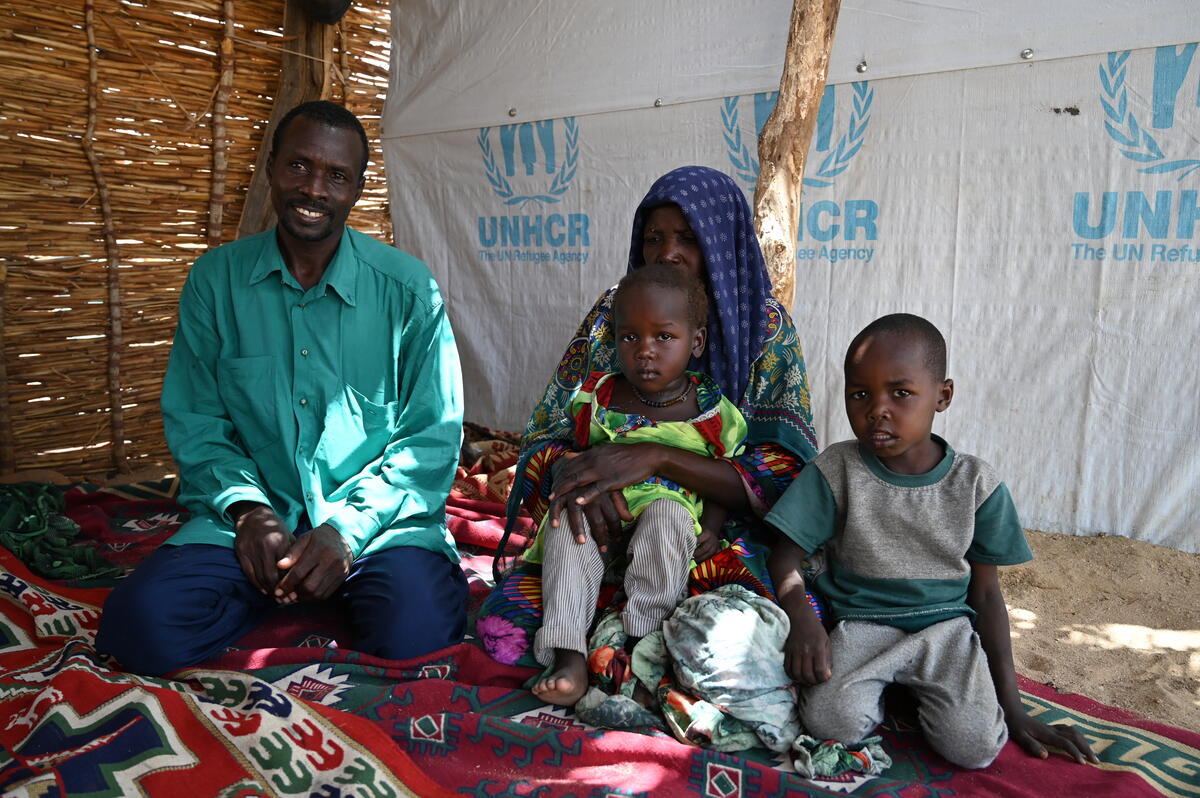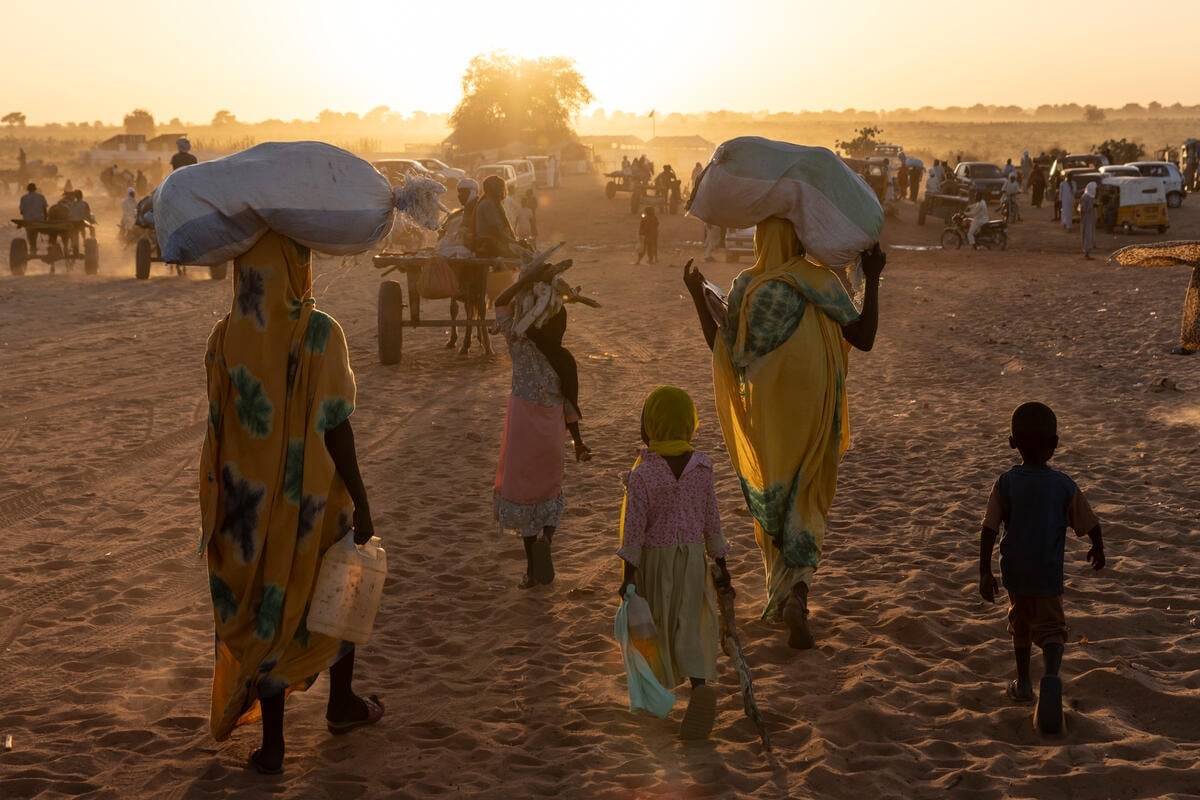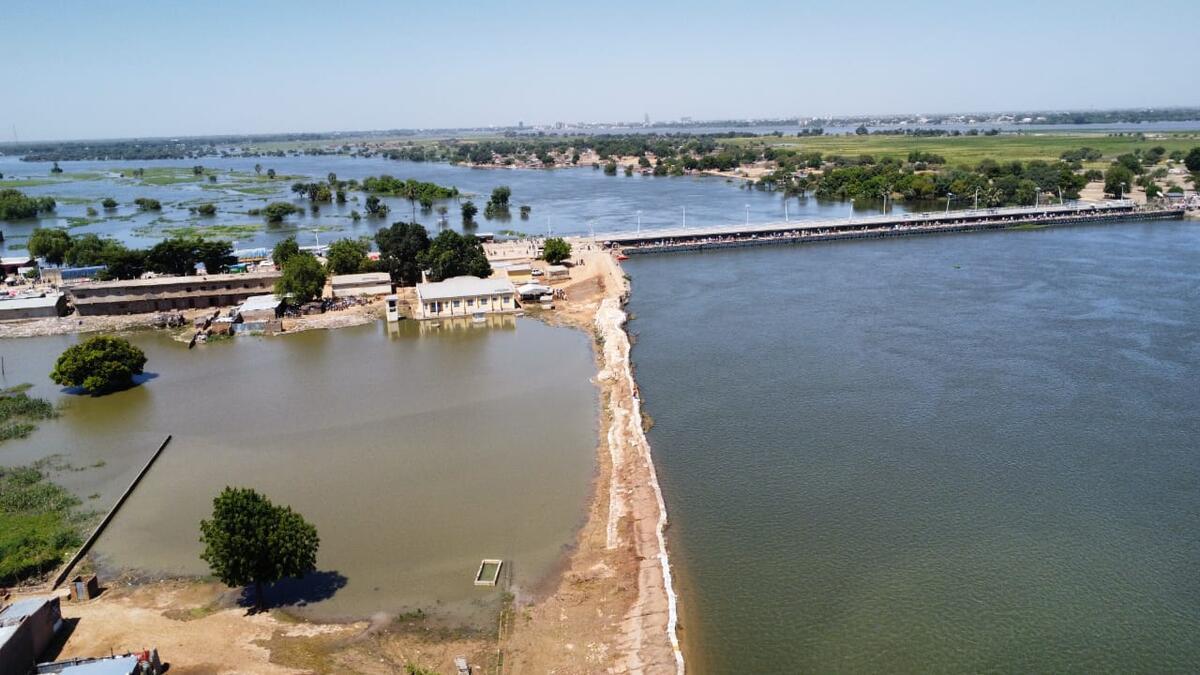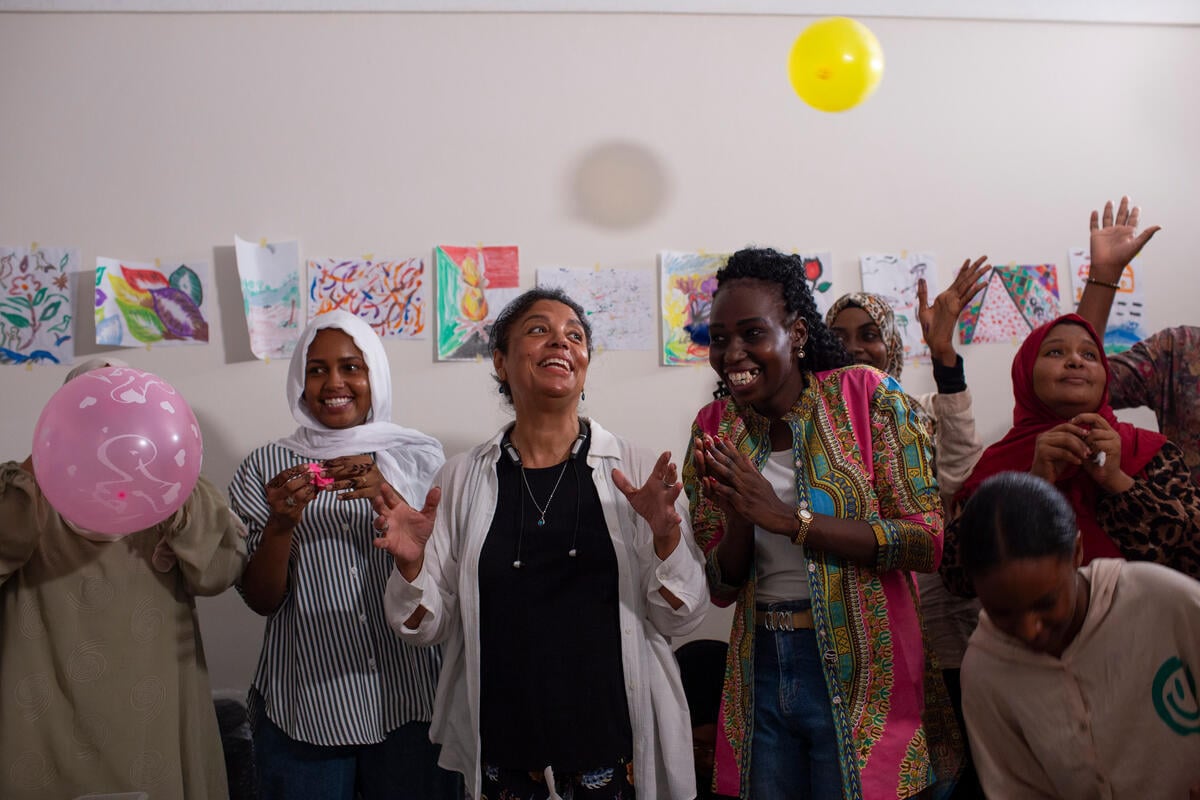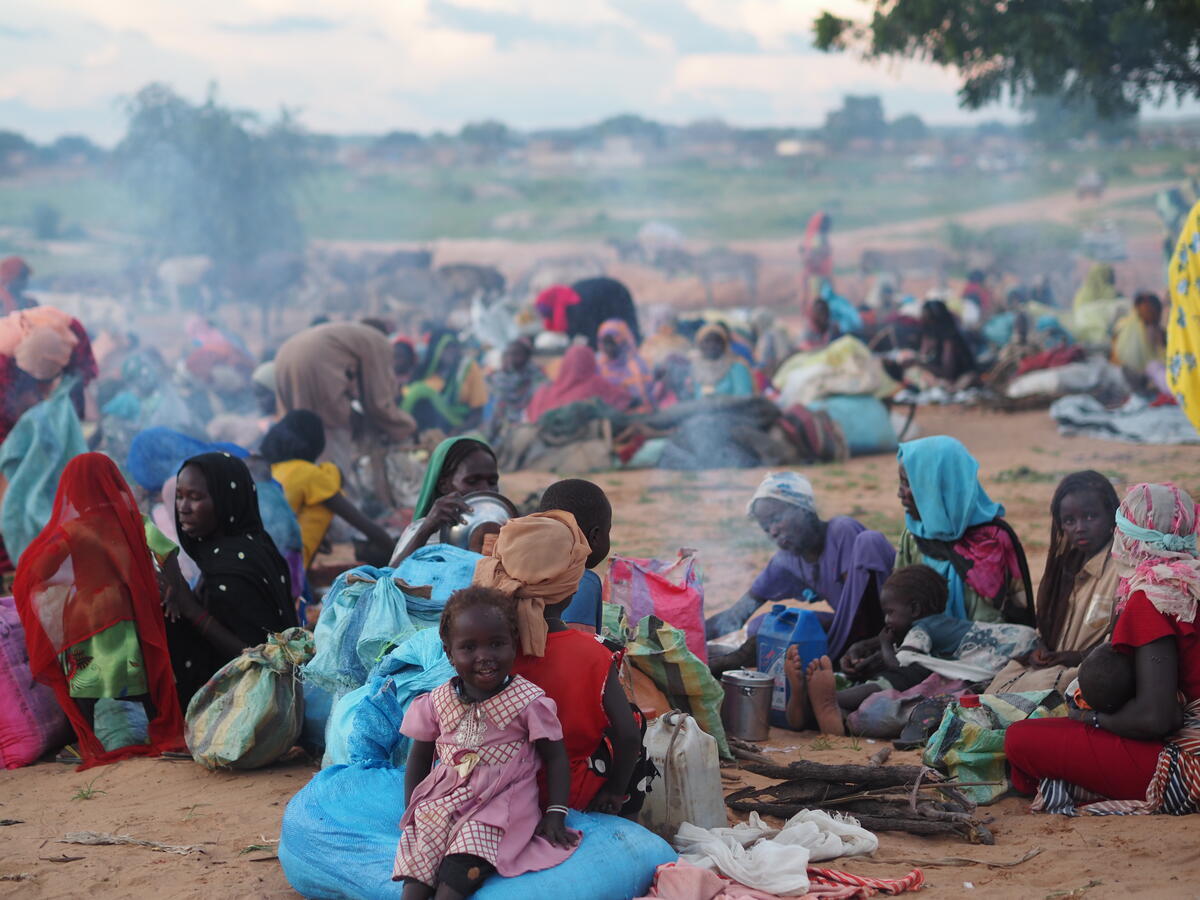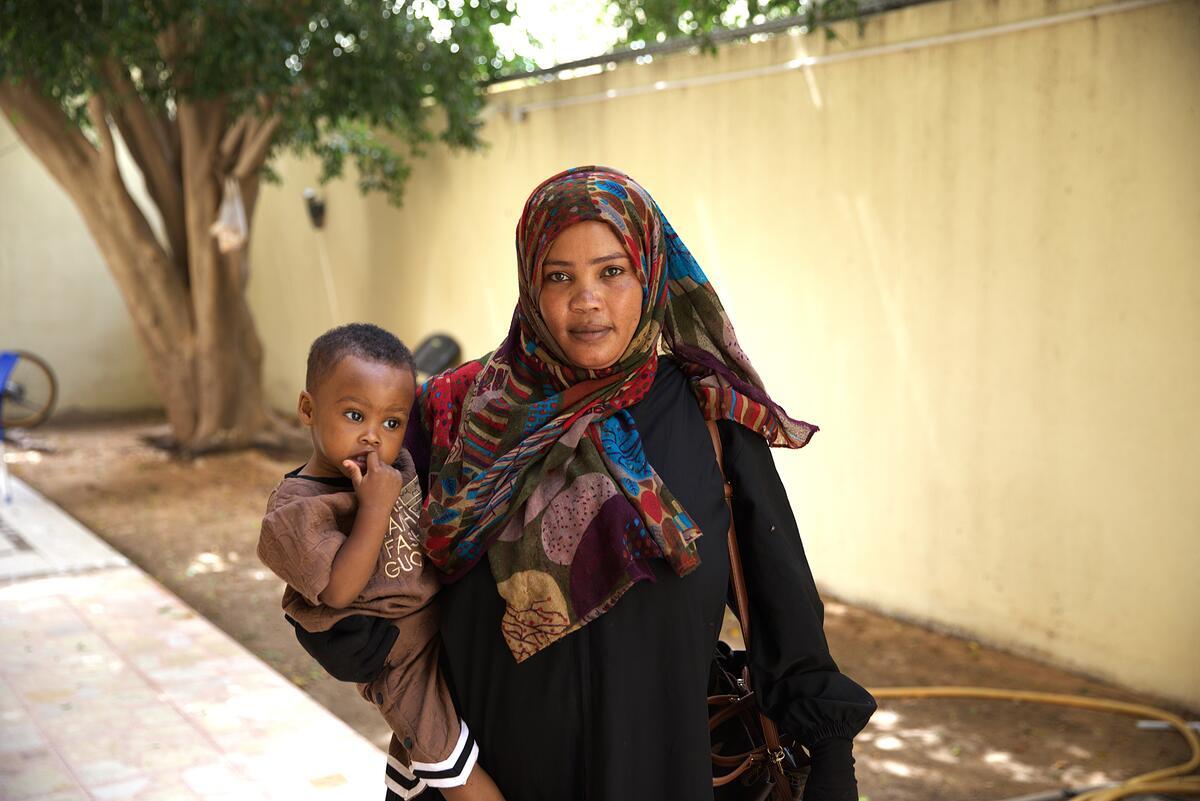Chad: Inter-ethnic violence pushes up IDP numbers
Chad: Inter-ethnic violence pushes up IDP numbers
Recent inter-ethnic violence, including attacks by Arab-led armed groups along the tense border areas in eastern Chad adjacent to Darfur, has now pushed the numbers of internally displaced in the past year up to an estimated 63,000 from an earlier figure of 50,000. This latest revised figure includes more than 2,000 Chadians who were displaced near Koukou in October as well as displacements in August and September. It also reflects a more detailed verification of groups displaced earlier that UNHCR and partners have had greater access to since the end of the rainy season.
Displacement in eastern Chad is mainly caused by inter-ethnic violence. At least 10 villages were attacked in early October by what villagers described as armed Arab-led groups. Dozens were reported killed and wounded. People fled after being attacked or out of fear they could be targeted. They headed to areas around UNHCR's Goz Amir refugee camp near the village of Koukou. The refugee camp currently hosts 18,000 Sudanese refugees from Darfur.
Our team recently visited some of the attacked villages and described scenes of devastation with houses looted and burned. In Djedide village, some 30 percent of houses were burned in an apparent random pattern. There were signs that villagers fled in a hurry - houses still had family belongings and food supplies were intact. Our teams also travelled through several deserted villages, and saw many people returning to their villages to fetch belongings they left behind. They said they did not feel secure enough to return to their homes permanently.
Last April, several villages were attacked, allegedly by Arab-led tribes. In one of those attacks, over 100 people were killed. The recent attacks bear tragic similarities to the carnage across the border in Sudan's Darfur region. UNHCR has urged for an international presence in eastern Chad.
In the Koukou area, along with our partners, we delivered basic relief items such as plastic sheeting for shelter, mosquito nets, buckets, jerry cans and soap to the newly displaced. Even though the displaced are anxious to return home before this month's harvest, UNHCR and its partners are preparing them for other possibilities. If insecurity prevents them from going home immediately, the Chadians will have to move to one of two sites in the area that have been designated for IDPs and made accessible to humanitarian agencies. One of them, Habile, near Goz Amir camp, has already nearly reached its full capacity of 3,500 people.
In another development, UNHCR is extremely concerned about an attack on October 29 against civilians and displaced persons which occurred in the vicinity of Jebel Moon and Seleha areas, in West Darfur. Our team in eastern Chad reported a group of 10 refugees crossed the border fleeing from this incident, where reportedly 300-500 Arab militiamen on horseback raided at least eight villages as well as the Hajlija IDP camp. We are sending a team today (Friday) to the border area near Birak on the Chadian side to monitor the situation and see what assistance the refugees need. According to initial reports, at least 50 civilians were killed, including 21 children under the age of 10. Thousands of people fled the locations that were attacked to safer sites in the Jebel Moon and Seleah areas.
UNHCR is assisting some 218,000 Sudanese refugees in twelve camps in eastern Chad and more than 45,000 refugees from the Central African Republic in three camps in southern Chad. In Darfur, Sudan, two million people are displaced.



